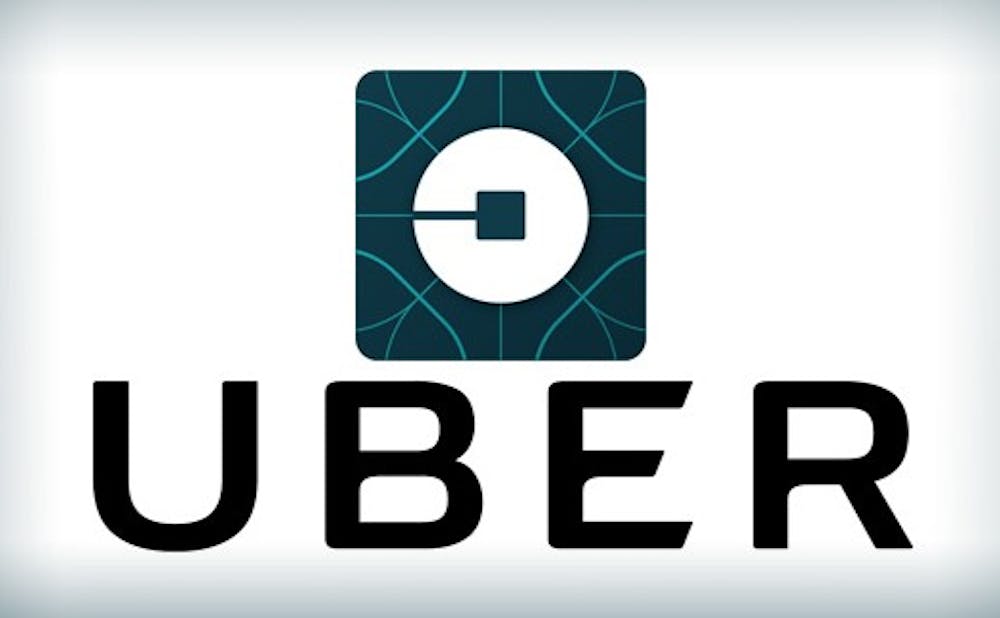Gone are the days of splurging on an Uber ride between the East and West Campus bus stops.
Duke is now preventing taxi and ride-hailing services from accessing certain high-traffic areas on Duke’s campus. Any Uber, Lyft, taxi or other app-based transportation service called to the Bryan Center Circle, West Campus Bus Stop, Research Drive Circle and East Campus Bus Stop will be automatically redirected to an alternative pick-up zone nearby.
The policy also affects pick-ups and drop-offs for game days and performances at Baldwin Auditorium on East Campus.
"We’ve talked with Uber and Lyft, and both have incorporated the designated drop-off and pick-up zones into their systems," said Alison Carpenter, transit planner for the Parking and Transportation Services department. "They’ve said that having a consistent location will also make it easier for drivers to find and connect with their riders."
The policy change began as an initiative of PTS to improve safety in areas with high pedestrian congestion. Planning began in the spring, with Duke Student Government, Housing and Residence Life, Duke Police, the athletic department and Uber and Lyft collaborating to design the strategy.
Carpenter wrote that some of the areas are now restricted because they had been sites of conflict between buses and private cars. Others were restricted simply because of limited space.
Though the strategy was created with safety in mind, some students said they are concerned that the new pick-up locations may in fact be less safe than before.
Senior Ashley Kelley said that redirecting students to less visible areas could put them at greater risk.
“I don’t think it’s a good idea for students to be waiting alone in the dark for a strange car if they’re not around other people. Those [original] areas are where security is, and that’s where the most blue lights are,” Kelley said, referring to the outdoor phones scattered around campus that dial directly to Duke police.
Carpenter responded to such concerns by claiming that the newly-designated zones are the closest possible options to the now-restricted areas, and also ensure vehicular and pedestrian access, visibility and proximity to security.
Kelley also pointed out a general lack of awareness of Duke’s new policy. She said the University must do more to inform students and drivers about the site changes.
“I haven’t heard about this yet, and my boyfriend’s an Uber driver. If he hasn’t heard about it, then it hasn’t been communicated to the local driving community yet,” Kelley said.
Sophomore Ivan Robles agreed with the new policy, but likewise believed the administration had the responsibility of advertising it to students.
“I think [the policy] is a good idea in response to all the congestion at bus stops and the potential for accidents, especially during sporting events," Robles said. "My only concern is that students will not be aware."
The policy is already in place, with a grace period extending until Sep. 18. Thereafter, drivers who violate the new rules will receive a $250 fine. It remains unclear whether the person ordering the ride will also be penalized.
Get The Chronicle straight to your inbox
Signup for our weekly newsletter. Cancel at any time.

